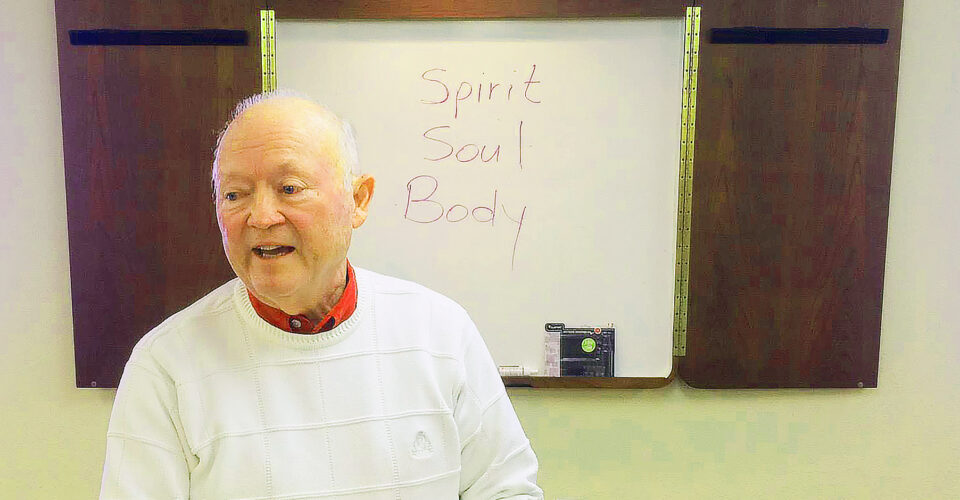Recruiting a High-Performing Campaign Cabinet Chair is Hall Powell’s take on the single greatest part of any fundraising campaign…LEADERSHIP.
“Money chases after ideas and there will always be generous people who will amply support your great dream when it’s backed by a sound plan!” says Jimmy LaRose about case for support. (Jimmy is the architect of Major Gifts Ramp-Up).
Assuming you have a compelling case for support what else is needed to ensure the success for a major gifts fundraising campaign?
Real Estate Brokers say that the key to success is Location, Location, Location! In the nonprofit fundraising sector, we say that for major gifts fundraising campaigns, the key to success is Leadership, Leadership, Leadership!
Recruiting a High-Performing Campaign Cabinet Chair
In my 40+ years as major gifts fundraising professional, both as a nonprofit organizations’ Chief Development Officer and as a fundraising consultant, I have seen fundraising campaigns that should have been successful fail to achieve their goals because of a lack of good leadership, and other campaigns that could have potentially failed that didn’t because of outstanding leadership.

What makes a good leader? When do you Recruit them? How do you recruit them? Let’s think about these questions:
What makes a good leader?
It is said that Peter Drucker, the famed Management consultant, once observed that one of the reasons that many World War I leaders failed in battle was that they didn’t lead the fighting; they just sent soldiers out to fight. The successful leaders led the fights, set the example for bravery and commitment, and inspired their troops.
A good leader is determined to be successful. “His or her name is on it.” If they commit to something they will be determined to complete the task, or exceed it. I remember one of my client campaigns for a children’s home organization in Memphis, Tennessee in the mid- 1980s, where the campaign chair person was so committed to being successful in achieving the campaign goal (for what was then a relatively unknown nonprofit origination) that he led his campaign cabinet/committee to raising three times the goal amount. Today, Youth Villages is a national leader in children’s mental and behavioral health across the country.
When do you recruit the campaign chair?
From day one of the starting date for your campaign begin brainstorming about who would be a good Campaign Chairperson. Ask yourself this: Who is the one person you know, if they were to ask you for a gift, would be hard to say “no” to? That is who should ask to be your Campaign Chair. One way Board members can help make the campaign successful without having to be on the campaign cabinet is to get them involved with thinking about prospects for the Chair position from among people they know or know about. The development staff should also have some suggestions for filling this critical position for the campaign. While composing a list of prospects for the Campaign Chair position, begin developing an Executive Summary of the campaign’s Case for Support. Why? Because you need to have that document for the recruitment of the Chair. You only need a case summary (1-2 pages), a basic description of why the need for a major gifts campaign. Once recruited, we want the Campaign Chair to help “flesh out” the actual Case for Support brochure that you will use for cultivation/solicitation phases of the major gifts campaign. In doing that, she or he will not only have a greater vision about the campaign but will also have a sense of “ownership” in having helped to create the document, and ownership in the campaign’s process of implementation.
How do you recruit the Campaign Chair?
Once you have a Case Summary and a list of prospects for the Campaign Chair, you must then have a meeting with your Board and staff (as appropriate) to review the prospects and determine who is the best person(s) to approach and ask the person to consider the position of Campaign Chair. Usually, and most effectively, the persons to recruit the Chair will ofttimes include the CEO, Board Chair, and Chief Development Officer. Of course, there will always be times when the best person to recruit the Chair will either one or more of the three just suggested, or might even include the fundraising counselor if the organization has retained a paid, outside professional to provide advice and counsel.
There have been many times during my counseling career when I was asked to be a member of the team going to recruit the campaign’s chair person. One benefit I brought to the conversation was that I could help ensure that the campaign was going to be successful because of the expertise I, and my firm, would bring to the table – years of campaign successes to use as examples. It has been very common for me to actually “make the ask” for the person to be the Chair for the campaign. Knowing that the client has retained expert counsel could help convince the prospective chair person that the campaign was being professionally managed and will be successful, so that his or her responsibilities will have the support they need to complete the campaign successfully.
It is imperative that you have a Job Description for the Campaign Chair position. This document will outline the chair’s duties and responsibilities and also include a timeframe for the campaign. Full disclosure. This document is essential and also will help to reassure the candidate that the campaign is being professionally conducted, but more importantly, he or she will know what is expected of them, what you are asking them to do, definitively.
If the prospective Chair declines to accept the position in the campaign, be sure to ask them if they could help to recruit someone else now that they know what you are asking them to do. It is very possible that a person is not accepting the position because of other concerns, situations, or timing (other conflicts), and maybe, now that they are familiar with the campaign, be a prospect for a major gift as a result of your attempt to recruit them.
A final thought: In addition of all the reasons given above as to why you should recruit the campaign chairperson as early as possible for a major gifts campaign, I know by experience that the chairperson and her or his core of friends and associates who make up the Campaign Cabinet will become strong supporters and constituents of your organization far beyond the task of completing the major gifts campaign. In addition to their largesse, you will have established a long-term relationship with them not only as donors but also as friends. Your next major gifts campaign will be easier to initiate and manage.
The legendary college football coach, Paul “Bear” Bryant once said,
If you believe in yourself and have dedication and pride – and never quit, you’ll be a winner. The price of victory is high -but so are rewards”
If you believe in your organization and are dedicated to its mission and purpose, never cease to have faith in your case for support when it’s deployed by a strong campaign chair. The rewards will exceed your expectations.
![]()
Senior Vice-President, Development Systems International
Recruiting a High-Performing Campaign Cabinet Chair was first posted at National Development Institute
For more articles like Recruiting a High-Performing Campaign Cabinet Chair VISIT HERE
About The Author:
 Hall Powell has served as Senior Vice President of Development Systems International (DSI) for more than a decade and has over 40 years of fundraising experience, including 19 as a fundraising consultant. He has provided campaign and development counsel to a wide variety of institutions throughout the country, with special emphasis in the healthcare field. Prior to joining DSI, Hall was senior consultant with the fundraising consulting firm Alexander Hass of Atlanta, Georgia. Previously, Hall served as the Executive Vice President of the Memorial Health Foundation, Inc. in Savannah, Georgia, and the founding Executive Director of the New Hanover Regional Medical Center Foundation, Inc., in Wilmington, North Carolina. He spent more than four years as the founding Director of the Amethyst Foundation in Charlotte where he played a significant role in the development of a nonprofit management seminar for Winthrop University. He also served as Director of Graduate Administration at Winthrop and was responsible for directing the Executive MBA Program as an Associate Professor in the Management Department. A seasoned lecturer in the nonprofit sector, Hall has also been an instructor with the Duke University Nonprofit Management Seminar. A Certified fundraising Executive, Hall Powell has served on the national board of directors of the National Society of Fundraising Executives, now known as the Association of Fundraising Professionals (AFP). He has also been instrumental in forming two AFP chapters. He holds an undergraduate degree from Guilford College and an MBA from Winthrop University. Hall Powell also engaged in graduate studies at Columbia International University. In his role as a fundraising counselor, Hall Powell is a strong advocate of the underlying philosophy of “donor-centered fundraising,” meeting the need of the donor to give, not putting the needs of the nonprofit organization as the primary motive for the donor/institution relationship. With this underlying philosophy for building comprehensive fundraising programs for institutions he served as Chief Development Officer, and for those he serves as fundraising counsel, he supports the Major Gifts Ramp Up Model. The model, accurately presented in 13 chapters built upon tried and proven best practices for successful major gifts fundraising, emphasizes building capacity for the nonprofit organization and long-term donor relationships. Finally Hall, is the author of The Missing Link: A Guide to Spiritual Reality
Hall Powell has served as Senior Vice President of Development Systems International (DSI) for more than a decade and has over 40 years of fundraising experience, including 19 as a fundraising consultant. He has provided campaign and development counsel to a wide variety of institutions throughout the country, with special emphasis in the healthcare field. Prior to joining DSI, Hall was senior consultant with the fundraising consulting firm Alexander Hass of Atlanta, Georgia. Previously, Hall served as the Executive Vice President of the Memorial Health Foundation, Inc. in Savannah, Georgia, and the founding Executive Director of the New Hanover Regional Medical Center Foundation, Inc., in Wilmington, North Carolina. He spent more than four years as the founding Director of the Amethyst Foundation in Charlotte where he played a significant role in the development of a nonprofit management seminar for Winthrop University. He also served as Director of Graduate Administration at Winthrop and was responsible for directing the Executive MBA Program as an Associate Professor in the Management Department. A seasoned lecturer in the nonprofit sector, Hall has also been an instructor with the Duke University Nonprofit Management Seminar. A Certified fundraising Executive, Hall Powell has served on the national board of directors of the National Society of Fundraising Executives, now known as the Association of Fundraising Professionals (AFP). He has also been instrumental in forming two AFP chapters. He holds an undergraduate degree from Guilford College and an MBA from Winthrop University. Hall Powell also engaged in graduate studies at Columbia International University. In his role as a fundraising counselor, Hall Powell is a strong advocate of the underlying philosophy of “donor-centered fundraising,” meeting the need of the donor to give, not putting the needs of the nonprofit organization as the primary motive for the donor/institution relationship. With this underlying philosophy for building comprehensive fundraising programs for institutions he served as Chief Development Officer, and for those he serves as fundraising counsel, he supports the Major Gifts Ramp Up Model. The model, accurately presented in 13 chapters built upon tried and proven best practices for successful major gifts fundraising, emphasizes building capacity for the nonprofit organization and long-term donor relationships. Finally Hall, is the author of The Missing Link: A Guide to Spiritual Reality



